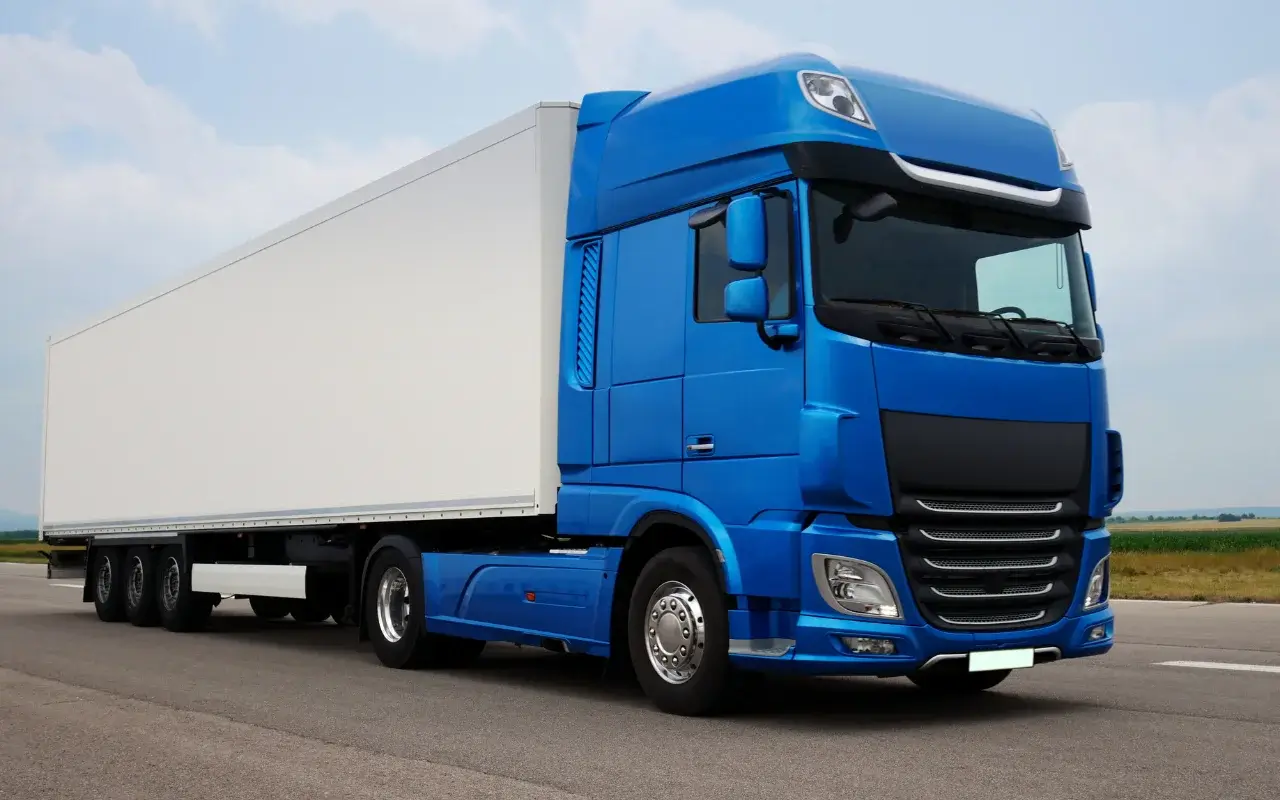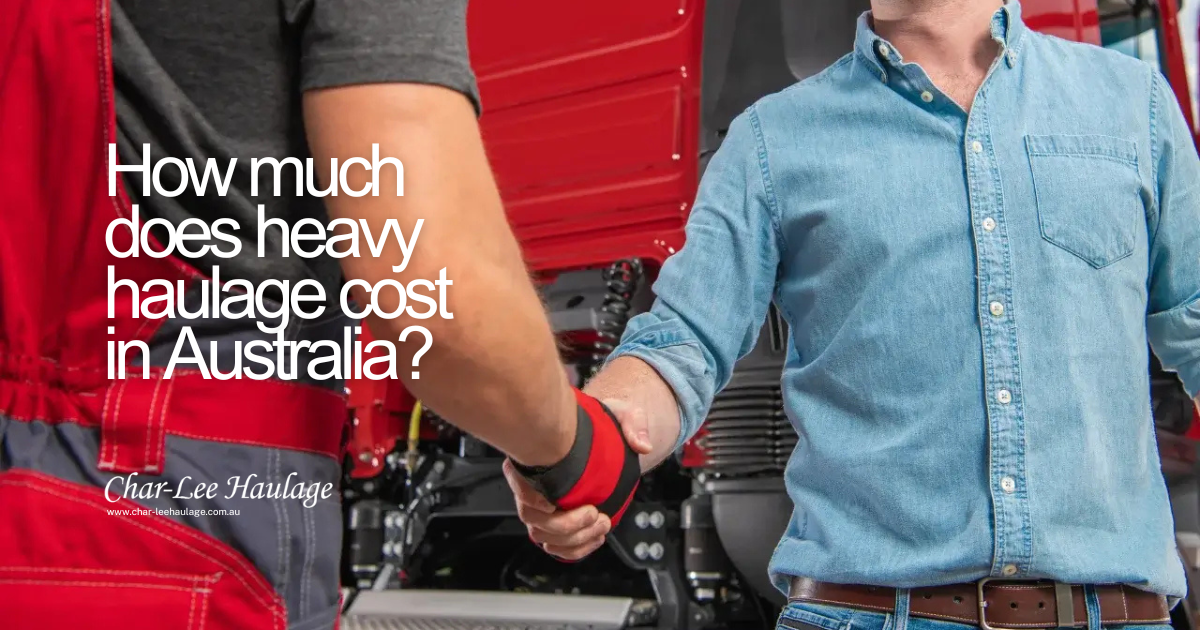Heavy haulage is an essential component of the majority of Australian industries, such as construction, mining, agriculture, and manufacturing. Heavy haulage is the transportation of colossal, oversized, or heavy cargo that common cars are unable to transport. The cost of heavy haulage services depends on numerous parameters, such as machinery type, massive equipment, or industrial parts being moved. Information regarding these costs is essential for companies that have to budget for such services and ensure smooth movement of their commodities.
Understanding Heavy Haulage
Heavy haulage refers to the carriage of commodities beyond the normal size or weight limits of typical haulage. These commodities consist of machinery, equipment, industrial components, and vehicles. Heavy haulage tends to be more costly than typical freight or carriage services since specialised transportation machinery and tools are required. Heavy haulage costs in Australia differ based on various factors such as load type, distance, regulatory issues, and route used.

Factors Affecting Heavy Haulage Costs
Type of Load
The nature of the load being hauled has a significant role to play in how expensive heavy haulage will be. Special or heavy equipment or machinery, for instance, will require bigger and more specialised vehicles like flatbeds or low loaders, which will increase costs overall. In addition, delicate or high-value items will need to be treated specially, increasing cost.
Distance Traveled
The distance between collection and delivery points plays a big role in determining the cost of heavy transport services. Greater distances mean more fuel, more time, and potentially more permissions and approvals from local authorities, totaling a greater expense. Shipping within Australia becomes astronomical if the trip involves crossing multiple jurisdictions since every state can have its own regime for moving big or heavy items.
Permits and Regulations
There are stringent regulations for the movement of heavy cargo in Australia. Based on weight and size of loads, permits can be required to make trips along certain routes, especially urban routes or along main highways. Permits typically come with extra fees. Regulations on transit timing, weight, and road types can also be factored in when calculating the cost of service. If the haulage business has to obtain these licenses, then the price will be passed on to the consumer.
Route and Accessibility
Accessibility of the route is important when determining prices. If the route traverses through narrow roads, underpasses, or restricted zones, coordination and planning are raised. This can involve the procurement of special passes or the employment of escorts to ensure the delivery of the cargo safely. To avoid obstructions, haulage firms can have to go onto diversions or come up with alternative routes, which can cost a lot of money.
Escort Vehicles and Traffic Management
Heavy haulage trucks would need a pilot or an escorting vehicle to ensure their safety and smooth movement. Escort vehicles assist traffic management, alert other road users, and offer the required aid to the haulage truck. Escort vehicle necessity would depend upon the weight and dimensions of the load, as well as the route traversed. Further traffic control or road closure measures are what add to the expense.
Type of Equipment Used
Heavy haulage will require specialized machinery, which may affect the price. Depending on the cargo, companies may be required to hire cranes, forklifts, or hydraulic ramps when offloading and loading. The price of equipment such as this and the price of labor involved may contribute to the service price. Some of the hauling companies may also charge for special machinery usage or for unpacking and packing services.
Timing and Urgency
The day you place the transportation order can also affect the price. If you would like your products delivered in a hurry or during non-peak business hours, you might be charged extra. There are rush services offered by some companies, but they come at a higher price. It is best to order in advance and provide sufficient notice so that you will not have to pay for rush services.
How Much Does Heavy Haulage in Australia Cost?
Australian heavy hauling costs between $200 and $1,000 per hour depending on conditions described above. Bigger and heavier loads, though, can result in astronomical leaps in prices. For instance, transporting big machinery used in construction over long distances can cost anywhere from $5,000 to $20,000 or more depending on size of load and distance covered.
There are also fixed prices for some routes or modes of transport with others carriers, so get plenty of quotes before deciding. And, depending on how complicated the job is, there are some haulage firms which will charge kilometre by kilometre or the hour.
Hidden Costs to Consider
Although heavy hauling companies cost money, there are some hidden fees to watch for. Waiting time fees, fuel surcharges, and damage insurance, for example, can add up in a hurry. It’s also important to know whether loading and unloading fees are included in the quoted price or paid as an additional fee.
Businesses that require long-distance hauling solutions or regular shipments may benefit from entering into a contract to achieve favorable prices or discounts.
How Can Char-Lee Haulage Help?
At Char-Lee Haulage, we understand the complexities involved in heavy haulage and the importance of cost-effectiveness and reliability. Our team is experienced in managing large, oversized loads and we can assist with everything from obtaining necessary permits to coordinating routes that minimize delays and costs. Whether you need help with Container Transport, Packing & Unpacking, Warehouse & Distribution, or General Storage / Reefer Storage, we have the expertise and equipment to handle all aspects of your logistics needs. By choosing us, you can rest assured that your heavy haulage needs are in good hands, and that we’ll help you navigate the intricacies of the transport process while minimizing your expenses.

Tips for Reducing Heavy Haulage Costs
- Plan ahead
It is always best to book your transport in advance. Advance booking will enable you to obtain better rates, particularly during peak seasons. It also provides the haulage company sufficient time to organize the most convenient route and acquire all the required licences, avoiding last-minute costs.
- Compare quotes.
Always seek quotes from more than one organisation before making a decision. This improves your understanding of the market rate and allows you to select providers that have competitive prices for the services that you require.
- Consolidate shipments.
In case you have several cargo to move, consider consolidating them into a single shipment. This can help minimize overall costs, particularly for long-distance transport.
- Choose the Right Equipment
Consult your haulage company for the right class of vehicle for your particular load. Sometimes selecting a bit smaller or more cost-effective car can be less expensive without losing out on security and quality of service.
- Request discounting.
If you are a regular customer or have a large or ongoing freight requirement, ensure you ask your haulage company if they offer any discounts or loyalty schemes.
Breaking Down the Price of Heavy Haulage in Australia
Heavy haulage is a major service for transporting heavy and large loads in Australia, and knowing the costs is vital to companies so they can effectively budget. Load type, distance, equipment, permits, and road accessibility all come into play when determining the ultimate cost, so it’s critical to plan your transport requirements strategically. By considering all the parameters of the service and choosing a trusted firm such as Char-Lee Haulage, you can rest assured that your heavy haulage need is fulfilled in a cost-effective and safe way, with no surprises in between.


Recent Comments